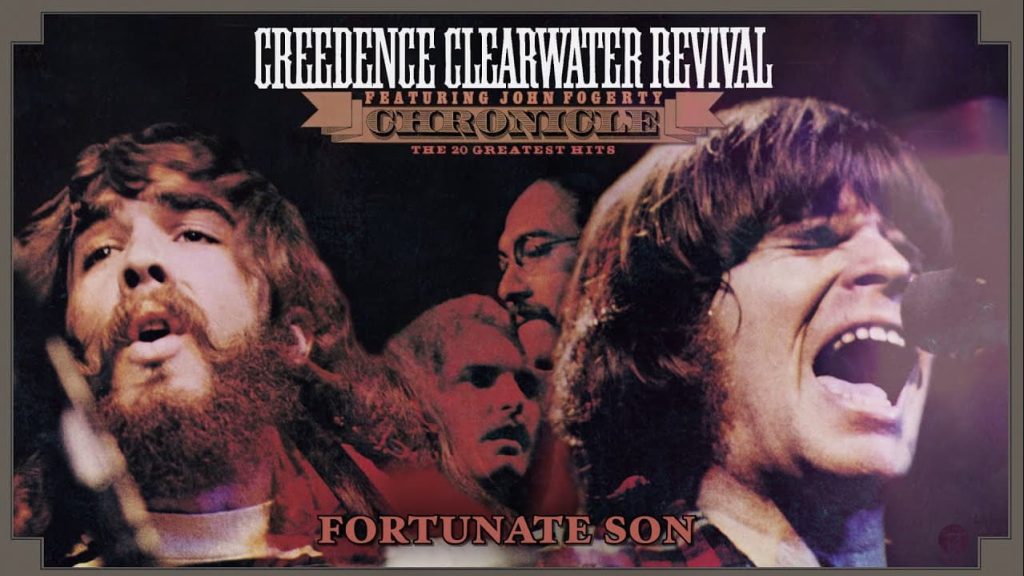
Creedence Clearwater Revival’s “Fortunate Son” – A Bold Voice of Protest and Patriotism
Released in September 1969 as part of a double-sided single alongside “Down on the Corner,” “Fortunate Son” quickly became a powerful anthem, carving out its place in both rock music history and the broader cultural landscape. Creedence Clearwater Revival (often referred to as CCR), led by the distinctive vocals of John Fogerty, delivered a song that resonated deeply with the American public, particularly during the height of the Vietnam War.
At its core, “Fortunate Son” is a protest song—an anti-establishment outcry against the injustices and inequalities of the time. It calls out the privilege of those in power, particularly those who escape the burdens of war while the working class and underprivileged are left to fight in their place. The lyrics, “It ain’t me, it ain’t me, I ain’t no senator’s son!” paint a vivid picture of the frustration many felt toward the government and elite, who seemed disconnected from the reality faced by the average American soldier. While not directly blaming the troops, Fogerty and his band used “Fortunate Son” as a means to express solidarity with them, making the song a rallying cry for the anti-war movement of the late 1960s and early 1970s.
The song’s release timing couldn’t have been more fitting. As the Vietnam War raged on, the counterculture and anti-war protests were reaching their zenith. In November 1969, the song reached number 14 on the U.S. charts, and within a few weeks, it climbed to number 3, propelled by its relevance and appeal. “Fortunate Son” quickly became synonymous with the discontent felt by a generation questioning the motives of their government while supporting the soldiers who were sent to fight. It also earned the RIAA Gold Disc award in 1970, cementing its success.
Beyond its initial chart success, “Fortunate Son” has maintained its cultural significance. Over the decades, the song has been featured in numerous films and TV shows depicting the Vietnam War, helping to solidify its role as one of the most enduring representations of that tumultuous era. In 2004, Rolling Stone ranked it number 99 on its “500 Greatest Songs of All Time” list, and while it moved down to number 227 in 2020, the track’s legacy remains untouchable. In 2013, it was added to the National Recording Registry by the Library of Congress, highlighting its importance as a piece of American cultural history.
Though more than five decades have passed since “Fortunate Son” was first released, its message still resonates. The themes of inequality, class divide, and the questioning of authority remain relevant in many modern discussions, and Creedence Clearwater Revival’s timeless sound continues to inspire generations. “Fortunate Son” isn’t just a song—it’s a statement, a snapshot of a time when music was used to voice the frustrations and hopes of a nation in turmoil.